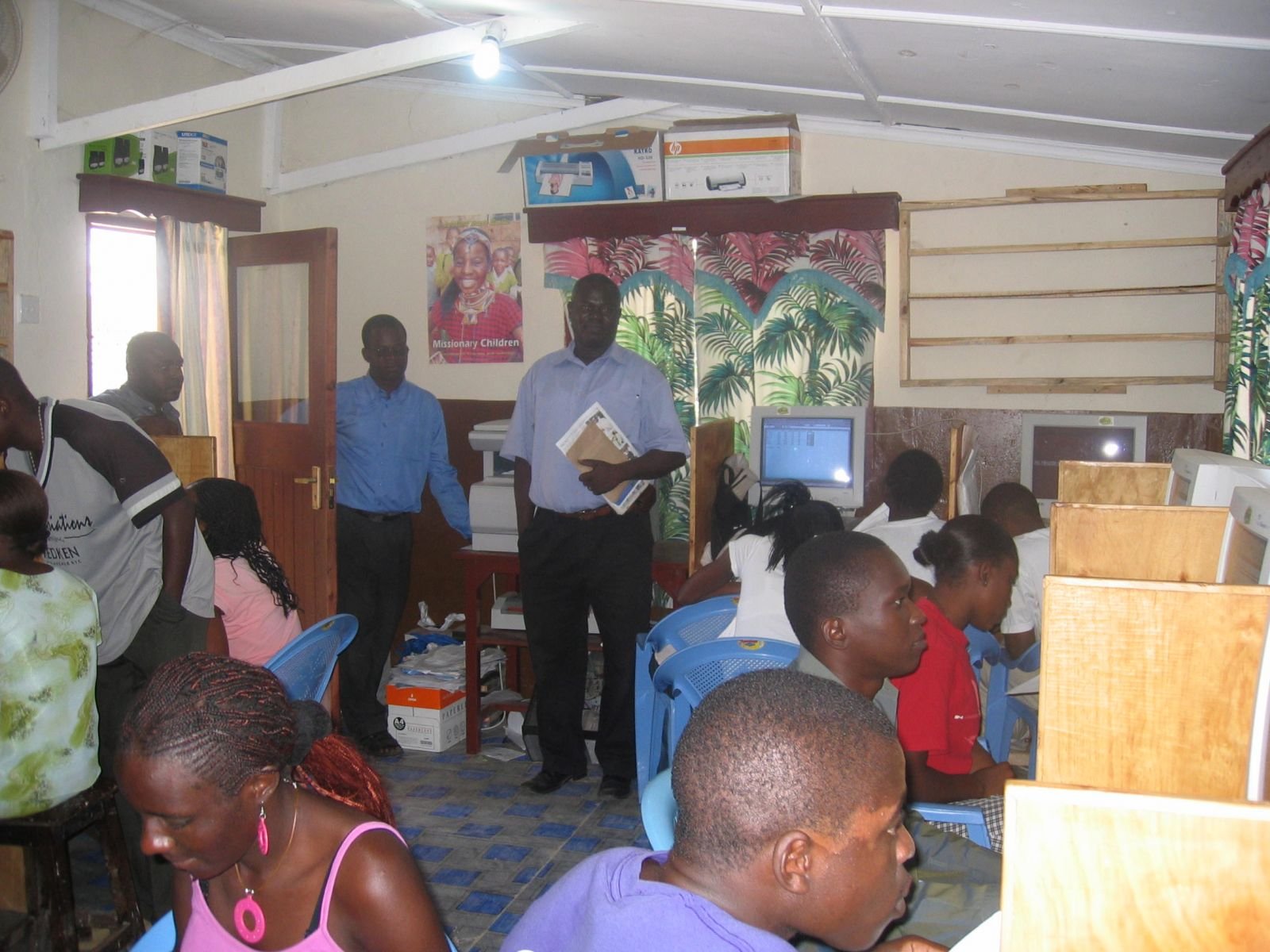Kenya’s Schools to Benefit from Wikimedia - Local Developers Partnership
NAIROBI---The initiative, which is part of projects meant to mark Wikipedia (the online encyclopaedia’s 10-year anniversary), will see developers drawn Kenya’s Wikimedia Chapter launch a pilot project on offline learning content in the country’s three districts.
 The selected pilot districts – of Kakamega, Mombasa and Nyeri – will each have 10 schools (five primary and five secondary) having their teachers and students being trained on how to use offline learning and teaching materials developed by Wikimedia Foundation.
The selected pilot districts – of Kakamega, Mombasa and Nyeri – will each have 10 schools (five primary and five secondary) having their teachers and students being trained on how to use offline learning and teaching materials developed by Wikimedia Foundation.
According Ting Chen, Wikimedia Foundation’s board of trustees chairman, the selected schools were considered as they already have deployed basic IT infrastructure like computers but lack internet connectivity.
“Kenya and the rest of Africa are very important and a key emerging market in as far is internet is concerned. That is why we want to engage with Africans to enable them contribute knowledge and improve neutrality of Wikipedia’s knowledge base,” said Chen, adding that the engagement is to be done via established Wikimedia chapters in African countries.
Currently, Wikimedia Chapters - independent organizations founded to support and promote the Wikimedia projects within a specified geographical region or country – are about to be set up in South Africa, Algeria, Morocco, Uganda while Kenya’s chapter is up and running. Overall, there now exists about 20 Wikimedia Chapters globally.
Like the Wikimedia Foundation, the Wikimedia Chapters aim to "empower and engage people around the world to collect and develop educational content under a free licence or in the public domain, and to disseminate it effectively and globally."
The Wikimedia project in Kenya seeks to help schools with no internet connectivity to access learning content by distributing offline content with a view to eventually improve the schools’ and learners’ awareness about Wikipedia tools.
“The Kenya Wikimedia chapter is to distribute software to the pilot schools that already have IT hardware deployed. This is meant to help the learners and teachers in these schools to utilize and benefit from offline learning and teaching tools before they upgrade to online tools in the future,” said Chen, who works for IBM Germany as an IT specialist apart from being a Wikipedia volunteer.
Ann Njeri, a Kenya Wikimedia chapter member or volunteer, said that the Wikimedia Kenya project, which began in mid January and set to end in March 2011, would involve the training of students and teachers in the selected schools on how to use the software.
“Our hope is to handle two schools per day, installing the latest edition of the Wikipedia software and conducting the training,” said Njeri.
Ms Njeri, who is a Bachelor of Commerce student at Nairobi’s Strathmore University, however said there is less Kenyan content on Wikipedia due to the limited number contributors from Kenya generating content and knowledge about the country, adding that the local Wikimedia chapter currently has less than 30 members or volunteers.
And it is not just Kenya that has less of its content or knowledge available via Wikipedia but the whole of Africa.
“Wikipedia is more developed in US and EU but not in Africa, India and Brazil. That is why we are engaging with local knowledge creators. A look at current Wikipedia articles indicates that by last year, Wikipedia had more articles about New York City than the Africa,” noted Chen, adding that this is the reason why the Wikimedia Foundation is seeking to recruit more volunteers or contributors from Africa, who currently number about 1,000.
The Wikimedia Foundation, a US-registered non-profit organization, hosts websites known as "Wikimedia projects", including Wikipedia and Wikinews, as well as this website, Meta-Wiki. The Wikipedia project, which is dedicated to building free encyclopaedias in all languages of the world, was established in January 15 2011 by Jimmy Wales of US and currently has about 100,000 contributors or volunteers generating its content.
Starting with English language Wikipedia in January 2001, this was soon joined by a French edition followed by many other languages.
As of early March 2006, the English Wikipedia hit 1 million articles while by September 2007, the English Wikipedia had hit 2 million articles, before moving to 3 million articles by August 2009. Another Wikipedia milestone was recorded in late September 2004 when it reached a total of 1 million articles in over 100 languages.
As of January 2011, there were 266 Wikipedias which have more than 100 articles, 98 of which have over 10,000 articles, and 35 of which have over 100,000 articles. Following the English language Wikipedia, the German, French, Polish, Italian, Japanese, and Spanish editions have over 600,000 articles each.
As of January 2011, there were 278 language editions of Wikipedia, which collectively have more than 17 million articles.
- Bill Gates: Rallying Cry for Clean Energy. Will it be Enough?
- Indigenous turn to ecotourism to protect ancestral forests
- Time running out to save Mekong from destructive dams
- Report on demonstration for land for Sumanahalli
- Pope Benedict approves new legal structure for Caritas Internationalis
- “Feeding the World, Caring for the Earth.” Family Farming – our alternative for the future
- KENYA: Church Development needs Effective Management, Cardinal
- Ethiopia 'using aid as weapon of oppression'
- Is India too wealthy for British aid?


 Votes : 0
Votes : 0









